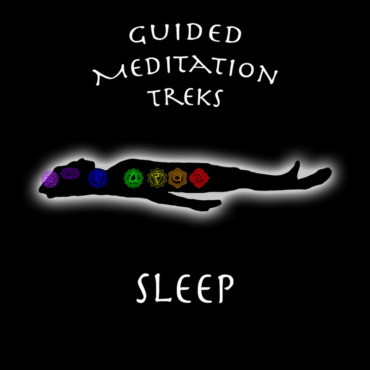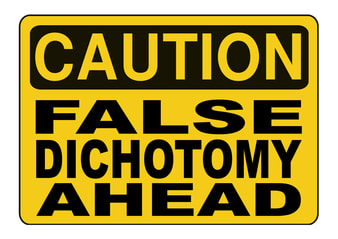There’s an ongoing question in theology circles and in society as to whether such a thing as “good or evil” exists. It gets confusing when religions like Buddhism and societal norms tell us “don’t judge!” There are also nefarious groups who want to convince you that “in the eyes of God, there is no evil” and they use that as an excuse to do whatever they want to whomever they want. Well, I’m here to tell you unequivocally say that yes, there is evil on this planet, and generally speaking, if you are living your life for your highest self, for the greatest good of all (as I try to do), then you do your best to stay away from it. But how do we hold this idea of protecting ourselves from evil in the one hand, and in the other hand, hold the concepts of non-judgement and compassion for others? Well, this concept is also covered in Buddhism, but it’s one that is less often mentioned, likely because it is the one that keeps you from being taken advantage of — This concept is discernment.
A simple example
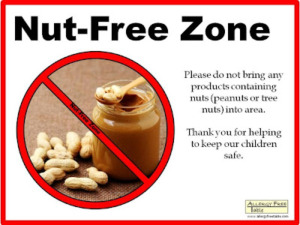 Let’s start with an example that is impossible to argue with — food allergies. Someone might use discernment in their own diet and avoid peanuts because they would go into anaphylactic shock if they ate them. Would you judge them for that? I would hope not. We all need to use our own discernment to determine what we put in our body. Not everyone is allergic to peanuts, so for some people, they may not need to discern peanuts because it’s as good a food as any other (though I bet if they paid close attention to how their body felt after eating peanuts, they might want to discern a little better, but that’s a side conversation). My point here is that it would be ludicrous to tell someone that they should eat peanuts when their body rejects it. Similarly, it would not make sense for someone with a peanut allergy to say that nobody else should eat peanuts. People with a peanut allergy have a right to stop others from forcing peanuts on them (for self-preservation), but it’s a stretch to say that we should ban peanuts because some people are allergic. We are free to use our own discernment on whether or not to eat peanuts, but we should not judge someone else for their own discernment to make their own decision.
Let’s start with an example that is impossible to argue with — food allergies. Someone might use discernment in their own diet and avoid peanuts because they would go into anaphylactic shock if they ate them. Would you judge them for that? I would hope not. We all need to use our own discernment to determine what we put in our body. Not everyone is allergic to peanuts, so for some people, they may not need to discern peanuts because it’s as good a food as any other (though I bet if they paid close attention to how their body felt after eating peanuts, they might want to discern a little better, but that’s a side conversation). My point here is that it would be ludicrous to tell someone that they should eat peanuts when their body rejects it. Similarly, it would not make sense for someone with a peanut allergy to say that nobody else should eat peanuts. People with a peanut allergy have a right to stop others from forcing peanuts on them (for self-preservation), but it’s a stretch to say that we should ban peanuts because some people are allergic. We are free to use our own discernment on whether or not to eat peanuts, but we should not judge someone else for their own discernment to make their own decision.
It’s all about boundaries
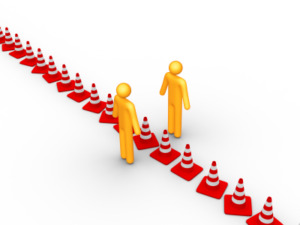 Looking at the above example, and any other example that has to do with “discernment” vs “judgement,” it all comes down to boundaries. Discernment is enforcing our own boundaries. Judgement is trying to decide someone else’s boundaries for them. It’s really that simple. If you create a boundary that you don’t want “evil” to enter your life, whether that evil is an axe murderer or a peanut, it is your right on a planet whose most important feature is “free will,” then it should be respected by others. It actually doesn’t even matter what that boundary is or why it exists, as long as it pertains to your own sovereignty and does not affect someone else’s. Once you go meddling in someone else’s boundaries, then you are judging them, and you are crossing the line.
Looking at the above example, and any other example that has to do with “discernment” vs “judgement,” it all comes down to boundaries. Discernment is enforcing our own boundaries. Judgement is trying to decide someone else’s boundaries for them. It’s really that simple. If you create a boundary that you don’t want “evil” to enter your life, whether that evil is an axe murderer or a peanut, it is your right on a planet whose most important feature is “free will,” then it should be respected by others. It actually doesn’t even matter what that boundary is or why it exists, as long as it pertains to your own sovereignty and does not affect someone else’s. Once you go meddling in someone else’s boundaries, then you are judging them, and you are crossing the line.
Do you delegate your discernment to judgement by others?
 As we saw in the last 3 years, the world had an epidemic of delegating their discernment to “experts” who told them to inject an experimental gene therapy developed in partnership between the department of defense and pharmaceutical corporations. Before we were able to have enough time to develop our own discernment as to whether we wanted to put this in our bodies, we were shamed into accepting it using the judgement by those very experts. For those of us who used discernment to put up a boundary of “my body my choice” and refuse the experiment, the government agencies came up with an unproven line of logic used to judge us, but this was shrouded in a facade and sold as discernment. We were told that we shouldn’t just take the shot for ourselves, but we needed to take the shot to “prevent others from getting the disease.” We were told that not injecting the shot was a violation of the boundaries of others. Nevermind that that the definition of a v墢lnē was that it protected those who took it; they changed the definition. Nevermind that herd immunity can develop from natural immunity, they ignored that. Nevermind that the drug didn’t actually protect anyone from getting the disease, that came out in time. Nevermind that it had many devastating side effects, everyone who experienced them were gaslit. Nevermind that a v墢lnē is often a “one and done” thing, we were marketed to take over and over, indefinitely, as the media was controlled by the same companies who produced it. It wasn’t long before the people who were shamed into injecting it started judging others who had the discernment to opt out of the largest medical experiment in human history. The craziest part was that most of the people who took it delegated their discernment to judgement by government figures who already had a history of failed medical policy. Will we ever learn?
As we saw in the last 3 years, the world had an epidemic of delegating their discernment to “experts” who told them to inject an experimental gene therapy developed in partnership between the department of defense and pharmaceutical corporations. Before we were able to have enough time to develop our own discernment as to whether we wanted to put this in our bodies, we were shamed into accepting it using the judgement by those very experts. For those of us who used discernment to put up a boundary of “my body my choice” and refuse the experiment, the government agencies came up with an unproven line of logic used to judge us, but this was shrouded in a facade and sold as discernment. We were told that we shouldn’t just take the shot for ourselves, but we needed to take the shot to “prevent others from getting the disease.” We were told that not injecting the shot was a violation of the boundaries of others. Nevermind that that the definition of a v墢lnē was that it protected those who took it; they changed the definition. Nevermind that herd immunity can develop from natural immunity, they ignored that. Nevermind that the drug didn’t actually protect anyone from getting the disease, that came out in time. Nevermind that it had many devastating side effects, everyone who experienced them were gaslit. Nevermind that a v墢lnē is often a “one and done” thing, we were marketed to take over and over, indefinitely, as the media was controlled by the same companies who produced it. It wasn’t long before the people who were shamed into injecting it started judging others who had the discernment to opt out of the largest medical experiment in human history. The craziest part was that most of the people who took it delegated their discernment to judgement by government figures who already had a history of failed medical policy. Will we ever learn?
Discernment for the children who can’t discern for themselves
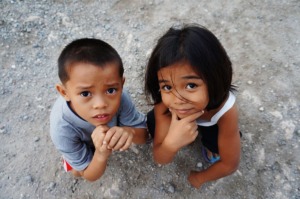 Discernment works great when we’re talking about consenting adults, but what about children? As a western society, adults have taken responsibility for the discernment of children. We don’t let anyone under 21 buy alcohol or cigarettes, because we know they are addictive and can be harmful. We don’t let anyone under 18 join the military because we don’t think they yet have the discernment to put their physical existence on the line for their country. We don’t even let them vote because we don’t trust them to make sound policy decisions for our republic. In these cases, we discern for children. Nowadays, the big question is WHO should be eligible to discern for children: their parents or the government? In the cases above, I would think that most people (except perhaps kids) would agree that these cases of discernment are actually discernment for the government’s boundaries, not the child’s boundaries. They don’t want kids in the military because they aren’t strong enough. We err on the side of not giving kids drugs because we know that we can be healthy without them, and their bad discernment under the influence causes problems like drunk driving. This is a no-brainer.
Discernment works great when we’re talking about consenting adults, but what about children? As a western society, adults have taken responsibility for the discernment of children. We don’t let anyone under 21 buy alcohol or cigarettes, because we know they are addictive and can be harmful. We don’t let anyone under 18 join the military because we don’t think they yet have the discernment to put their physical existence on the line for their country. We don’t even let them vote because we don’t trust them to make sound policy decisions for our republic. In these cases, we discern for children. Nowadays, the big question is WHO should be eligible to discern for children: their parents or the government? In the cases above, I would think that most people (except perhaps kids) would agree that these cases of discernment are actually discernment for the government’s boundaries, not the child’s boundaries. They don’t want kids in the military because they aren’t strong enough. We err on the side of not giving kids drugs because we know that we can be healthy without them, and their bad discernment under the influence causes problems like drunk driving. This is a no-brainer.
A new problem has arisen where government and external organizations are trying to use their own discernment to push deeper and go directly against the wishes of parents on things that involve the boundaries of the child but have nothing to do with society. Some states have even legislated laws that, if a child wants to take life-altering hormone therapy and/or have surgery to mutilate their genetalia, that they should be supported in their own discernment, even if that means hiding it from the parents. They believe that children with gender dysphoria are of sound enough mind that they can decide to have an irreversible sex change operation at a young age, and this will somehow cure their depression. While I am not one to judge a sovereign adult for doing whatever they want to their body, we have already agreed as a society that we should tread lightly when it comes to letting children make life-altering choices that have big consequences. What’s the agenda here?
Don’t Judge, but also Don’t let someone else infringe on your own discernment
 As a college-educated person who took biology 101, I can discern the difference between an X chromosome and a Y chromosome and agree that this is what causes sex in our species (just like every other species). I understand that the Y chromosome drives testosterone and male sex drive. I understand that sex is immutable. If I were a female, I’d consider it a boundary to not have men around when I am in compromised positions in a bathroom, for example. Privacy is a reasonable boundary. That’s discernment. If a dude wants to wear a dress and call themself a woman, that’s all fine and dandy, but I won’t let it prevent me from using my own discernment. I might be courteous and call them by their preferred pronouns (especially in Michigan, where it is now a felony to not address someone by their preferred pronouns), but I can’t be gaslit into actually believing that a man is a woman. I also have sympathy for actual women who are being erased by this movement that erases discernment between the sexes, whether it be from sports, fashion, or as role models in society. Clearly, men are taking over in women’s roles to a greater extent than women integrating into men’s roles by using these new loopholes. As a parent, we’ve had the discernment to not expose our children to strippers. Suddenly, groups want to say that it’s ok to have strippers dance for children, but only if they are men dressed as women.
As a college-educated person who took biology 101, I can discern the difference between an X chromosome and a Y chromosome and agree that this is what causes sex in our species (just like every other species). I understand that the Y chromosome drives testosterone and male sex drive. I understand that sex is immutable. If I were a female, I’d consider it a boundary to not have men around when I am in compromised positions in a bathroom, for example. Privacy is a reasonable boundary. That’s discernment. If a dude wants to wear a dress and call themself a woman, that’s all fine and dandy, but I won’t let it prevent me from using my own discernment. I might be courteous and call them by their preferred pronouns (especially in Michigan, where it is now a felony to not address someone by their preferred pronouns), but I can’t be gaslit into actually believing that a man is a woman. I also have sympathy for actual women who are being erased by this movement that erases discernment between the sexes, whether it be from sports, fashion, or as role models in society. Clearly, men are taking over in women’s roles to a greater extent than women integrating into men’s roles by using these new loopholes. As a parent, we’ve had the discernment to not expose our children to strippers. Suddenly, groups want to say that it’s ok to have strippers dance for children, but only if they are men dressed as women.
For some reason, there’s a movement where everyone needs to be “proud” of who they have sexual intercourse with. We don’t have a “straight pride” or “nuclear family pride” month because it might be weird to enforce our “traditional” beliefs on others, but I’d have the same argument either way. Let’s have pride about the freedom to have our own discernment, but maybe a little less pride about forcibly enrolling others into our lifestyle. We can discern that pride in being a “Minor Attracted Person” and acting on that impulse is also called pedophilia, and adults shouldn’t have the right to have sex with a child any more than someone should be able to give a child drugs or remove their penis because the child fleetingly thinks think they want it (or more likely is talked into it by a pusher). We can also discern the argument that “republicans used to marry 13 year olds back in the day” is not a justification either.
“Do not judge lest you be judged.” – Matthew 7:1
But In God’s Eyes, there is no evil?
 On it’s surface, I might agree with this. But it’s actually impossible for me to agree or disagree with this because of what I currently am – a human. The concept of God is a concept of infinity. Infinity is an unsolvable math problem. It’s impossible for me to fully understand god because it is all things, and it is simultaneously nothing. Perhaps if we were pure god, we could agree that there is no good and evil, but in the human form it is presumptuous for us to think that we can go there. Until we do, we can only use our own discernment to decide for ourselves, what is good or evil for our own experience, and not what is good or evil for others with whom we can adhere to mutually-exclusive boundaries.
On it’s surface, I might agree with this. But it’s actually impossible for me to agree or disagree with this because of what I currently am – a human. The concept of God is a concept of infinity. Infinity is an unsolvable math problem. It’s impossible for me to fully understand god because it is all things, and it is simultaneously nothing. Perhaps if we were pure god, we could agree that there is no good and evil, but in the human form it is presumptuous for us to think that we can go there. Until we do, we can only use our own discernment to decide for ourselves, what is good or evil for our own experience, and not what is good or evil for others with whom we can adhere to mutually-exclusive boundaries.
In my book, the only ones who believe there’s no good and evil are god and people trying to play god.
“The discerning heart seeks knowledge, but the mouth of a fool feeds on folly.” – Proverbs 15:14




